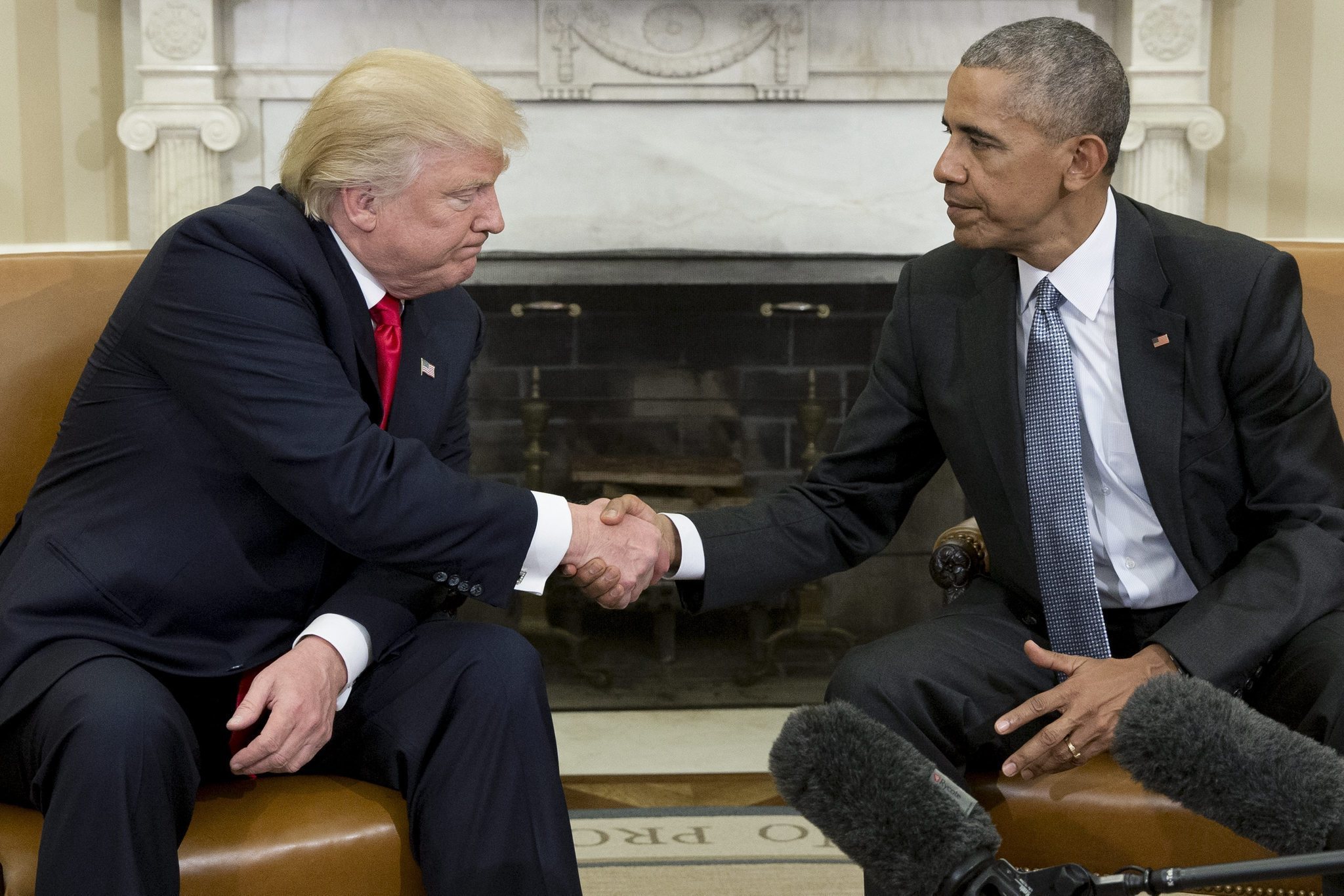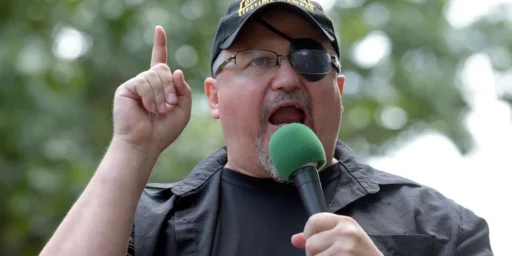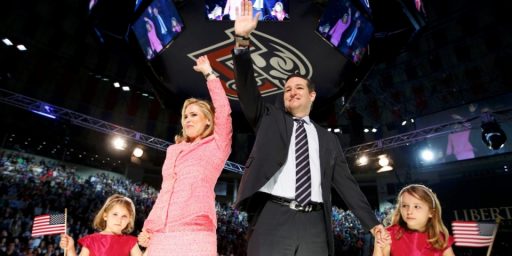New Book Reveals Obama’s Initial Reaction To Trump’s 2016 Win
A new book reveals President Obama's initial reaction to Donald Trump's election, and provides some detail about their first meeting.

One of the first books to come out from a former member of the Obama Administration reveals some never-before-known details of former President Obama’s reaction to the results of the 2016 election:
WASHINGTON — Riding in a motorcade in Lima, Peru, shortly after the 2016 election, President Barack Obama was struggling to understand Donald J. Trump’s victory.
“What if we were wrong?” he asked aides riding with him in the armored presidential limousine.
He had read a column asserting that liberals had forgotten how important identity was to people and had promoted an empty cosmopolitan globalism that made many feel left behind. “Maybe we pushed too far,” Mr. Obama said. “Maybe people just want to fall back into their tribe.”
His aides reassured him that he still would have won had he been able to run for another term and that the next generation had more in common with him than with Mr. Trump. Mr. Obama, the first black man elected president, did not seem convinced. “Sometimes I wonder whether I was 10 or 20 years too early,” he said.
In the weeks after Mr. Trump’s election, Mr. Obama went through multiple emotional stages, according to a new book by his longtime adviser Benjamin J. Rhodes. At times, the departing president took the long view, at other points, he flashed anger. He called Mr. Trump a “cartoon” figure who cared more about his crowd sizes than any particular policy. And he expressed rare self-doubt, wondering whether he had misjudged his own influence on American history.
Set to be published next week by Random House, Mr. Rhodes’s memoir, “The World as It Is,” offers a peek into Mr. Obama’s tightly sealed inner sanctum from the perspective of one of the few people who saw him up close through all eight years of his presidency. Few moments shook Mr. Obama more than the decision by voters to replace him with a candidate who had questioned his very birth.
(…)
On election night, Mr. Obama spoke by telephone with Cody Keenan, his chief speechwriter, and Mr. Rhodes to figure out what he should say. Mr. Rhodes asked if he should offer reassurance to allies. “No, I don’t think that I’m the one to tell them that,” the president said.
The next day, Mr. Obama focused on cheering up his despondent staff. At one point, he sent a message to Mr. Rhodes saying, “There are more stars in the sky than grains of sand on the earth.”
But days later, Mr. Obama seemed less sanguine. “I don’t know,” he told aides. “Maybe this is what people want. I’ve got the economy set up well for him. No facts. No consequences. They can just have a cartoon.”
He added that “we’re about to find out just how resilient our institutions are, at home and around the world.”
In the book, Rhodes also describes some of the former President’s discussions with world leaders after the election. Japanese Prime Minister Shinzo Abe, for example, is reported to have apologized for the meeting he had with President-Elect Trump at Trump Tower after the election that was perhaps most notable for the fact that Ivanka Trump sat in on the meeting notwithstanding the fact that she had no role in the transition. Rhodes also says that the former President urged Canadian Prime Minister to take on a more visible role defending their mutual values, something that is perhaps most notable recently by the fact that Canada entered into what is essentially a replacement for the Trans-Pacific Partnership that had nearly fallen apart after President Trump withdrew the United States from the agreement early in his Administration. Finally, Rhodes notes that German Chancellor Angela Merkel told the former President that the results of the American election and the disdain the Trump had expressed throughout the campaign made her feel more obligated to run for another term if only to have the chance to have a voice in an international order that Trump was threatening to significantly disrupt. Merkel, of course, did exactly that and ended up winning the election last September.
Perhaps the most notable thing about what is being reported about the revelations in Rhodes book, though, is the fact that the former President’s first reaction to the election results was essentially the repudiation of his own legacy and wondering whether he was elected a decade or two before the nation was ready for the type of change he represented. In the end, it will be history that will be the judge of that. If Donald Trump turns out to be a one-term President, then he will likely be replaced by a Democrat who shares most of Obama’s values who will seek to redo what Trump had undone and to reestablish the credibility of the United States on the world stage. In that case, the Trump Presidency will largely turn out to be something of a historical blip with the exception of whatever mark he is able to leave on the Federal Judiciary between now and January 2021. If Trump manages to win re-election, though, and the GOP retains or regains control of either or both chambers of Congress, then Trump’s Presidency will be far more transformational, and it will be harder for any Democratic successor to completely undo whatever he might have accomplished between now and January 20th, 2025. Indeed, if Trump lasts that long and the GOP holds onto Congress, then it’s likely that most of what Obama built during the eight years he was in office will have been dismantled. And the former President will be around to see it all happen. One wonders, then, how much longer he will be willing to remain silent about what is happening to American politics and culture, and what it will be that may finally cause him to speak up and speak out.




I disagreed with Obama plenty and thought he made mistakes. But the fact that he would ask this question is one more data point showing why he was so much more temperamentally suited to be President than Trump ever was or could be. Trump never wonders if he’s wrong, which is a very dangerous trait for a President to have.
The part that stuck out for me was this:
We really should have known better…
“We were just too ahead of our time.”
Where are all those psychiatrists who were opining on Trump? Do they take patients who are delusional? Poor Obama. Fading fast into irrelevant President….. A bitter empty suit isn’t a good look.
And that is almost certainly true. Relatives of mine who voted for Obama, then voted for Trump, all said they would have voted for Obama again if he could run. I suspect a large part of this is that most people vote for the team, but of those who switch votes from election to election (or vote split ticket) they vote on personality. Obama was personally liked by very many people, even by many who didn’t like his policies.
The same would also have been true for Reagan and Bill Clinton – they would have won if allowed a third term.
That too seems to be true. Some of that is just natural, it happens all around the world in every culture. Unless people are constantly reminded that they’re part of a greater culture they’ll fall back into their own group – and attacking that group accelerates it. I notice for instance that the best way to unify a group is to attack them. Even people who are unhappy with their group will defend it (this is very easy to see on a national level – for instance lots of Canadians are unhappy about various aspects of the country, but most will passionately defend Canada from hostile outside criticism.
Obama, for all his faults (drone bombings, bailing out banks directly instead of via home owners, not pushing for public health), was a very good president, and someone very easy to respect as a person.
I don’t accept the premise that Obama was ahead of his time. Progress always looks like this. There is always backsliding. California had it’s Pete Wilson, the US is having Trump. We know what the endgame looks like.
In his 2016 opening monologue at the Oscars, Chris Rock noted that some of the Oscars didn’t have any black people nominated in the 60’s, so why did black people care more about representation in 2016 than in the sixties? Because, he said humorously, “when grandma is swinging from a branch, you kind of focus on that”. Thing could still use a lot of improvement, but they are better than they were.
Oh really? That’s how you present yourself…
Honestly, Clinton might still be president if he was still eligible.
Said the in total lack of self-awareness by the man who promoted tribalism and identity politics for the previous decade.
But, if it’s true, then turns out people preferred to fall back on making America great again rather than the pessimistic “new normal” promoted during Obama’s time in office.
@JKB:
Obama didn’t. He rose to prominence on his “There’s no red states or blue states; there’s only the United States.”
It was only towards the end of his term when progressives were comfortable enough to start their “white men suck and I will kill Top Gun 2 if it doesn’t have women pilots” nonsense.
@Guarneri:
Yes, Trump is the same appalling malevolent narcissist now that he was in 1980, 1990, 2000, and on Inauguration Day 2017. You don’t need a bunch of psychaitrists to recognize and understand that. Also, Trump’s quiet little race war to purge all evidence of the Obama presidency has not gone unnoticed by Obama or any other sentient observer of this administration.
One can only laugh that Obama (and othe presidents for that matter) weren’t narcissists. Only the dimmest bulbs or the most partisan only see Trump that way.
But Trump derangement syndrome is alive and well here. I sincerely hope people can get past denial and deal with their neuroses.
@al Ameda:
PTSD ?
Remember’all politics are local’ and, in this case,
local means ‘our USA’. Obama forgot that most
people want familiar goals and policies…not
ambitious and progressive ‘hopes’.